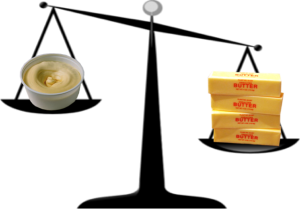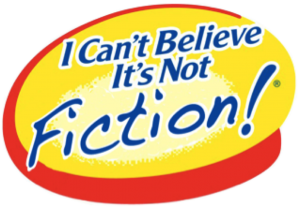
In February of this year I spoke publicly for the first time about my ancestors who were convicted in 1909 for selling margarine as butter and sent to Leavenworth Federal Penitentiary. (If you didn’t catch my talk, start at 45:18 of this video to watch just the last 10 minutes.) Though I gave only the highlights of their crazy story, the reaction I got was overwhelmingly positive.
I’m excited to share that next week I will be giving my first hour-long presentation on this branch of my family, “The Margarine Moonshiners from Minsk: Conducting Story-Driven Research,” at the International Conference on Jewish Genealogy in Salt Lake City.
In spring 2011 a routine search on my great-grandfather revealed the shocking surprise that he had been incarcerated in Leavenworth. What followed was a rollicking genealogical journey tracing a group of brothers and brothers-in-law recently immigrated from Minsk, who set out to sell margarine as butter in defiance of one the stranger pieces of legislation ever passed.
Learn how my desire to tell this story in its entirety led to uncovering the hijinks of my great-grandfather, who fled with his family repeatedly before the feds finally nabbed him, my great-grandmother, whose pleas to the warden still survive, the brother-in-law he fingered who was excommunicated for selling lard as butter, another brother-in-law who was arrested for threatening to kill a witness, the soon-to-be-famous inspector who was hot on their tail the entire time, and more.
Numerous historical and genealogical repositories will be discussed as I retrace my multi-year journey to get to the bottom of this long-concealed chapter in my family history and offer advice for how you can better pursue the fascinating leads in your own tree when you think like a storyteller.
And, of course, I’ll discuss in great detail why the heck margarine was legislated against in the first place.
If you don’t plan to attend the conference, one possibility is to watch the live-streamed talk on Tuesday at 5:15 PM eastern time. Details for purchasing access are here. If paying isn’t what you had in mind, don’t worry, this won’t be the last time I speak publicly about this branch of my family! But for those of you who do hear the talk, whether in person or online, afterwards you’ll all agree:

 Follow
Follow